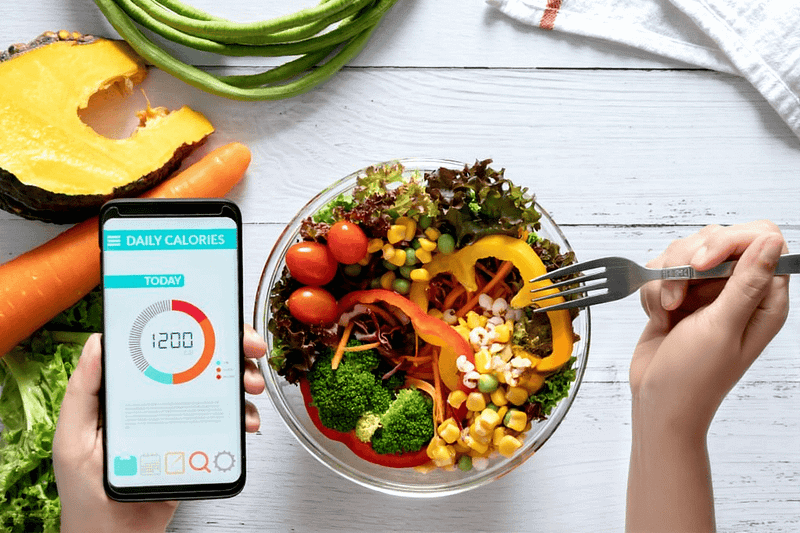Walking through the aisles of Woolies or Coles, you might think superfoods are expensive, exotic ingredients reserved for health food stores. The truth? Some of the most powerful nutrient-packed foods are sitting right there in your local supermarket, often at prices that won’t stretch your grocery budget. These everyday heroes can transform your health without requiring a second mortgage.
Australian supermarkets stock an impressive array of superfoods that deliver exceptional nutritional value. From vibrant berries to humble oats, these foods are backed by science and readily available across the country. The best part is that incorporating them into your daily routine can be surprisingly simple and delicious.
What Makes a Food “Super”?
Before diving into our top picks, it’s worth understanding what earns a food its superfood status. These nutritional powerhouses are incredibly dense in vitamins, minerals, antioxidants, and other beneficial compounds while being relatively low in calories. They’re whole or minimally processed foods that offer substantial amounts of nutrients with very few downsides.
Research shows that superfoods can help reduce your risk of chronic diseases including heart disease, type 2 diabetes, and certain cancers. They support everything from brain function to digestive health, and many possess anti-inflammatory properties that protect your body at the cellular level.
1. Blueberries: Tiny but Mighty Antioxidant Champions
These little purple gems are one of the top antioxidant foods you can buy. Blueberries contain powerful compounds called anthocyanins, which give them their distinctive colour and provide impressive health benefits. Research has linked regular blueberry consumption to improved memory, reduced DNA damage, and better heart health.
A single cup of blueberries contains 24 per cent of your daily vitamin K requirement and 14 per cent of your vitamin C needs, all for just 84 calories. They’re excellent for cognitive function and may even help slow age-related cognitive decline. Australian blueberries are widely available fresh during summer and autumn, and frozen varieties work brilliantly year-round, retaining all their nutritional goodness.
Toss them into your morning porridge, blend them into smoothies, or simply enjoy them as a sweet snack. Your brain and heart will thank you.
2. Spinach and Kale: Green Leafy Powerhouses
Dark leafy greens like spinach and kale are nutritional superstars available in every Australian supermarket. These vegetables are loaded with folate, zinc, calcium, iron, magnesium, vitamin C, and fibre. Both Coles and Woolworths stock convenient pre-washed bags, making it easier than ever to add greens to your meals.
These vegetables can significantly reduce your risk of chronic illnesses including heart disease and type 2 diabetes. The nutrients in leafy greens support bone health, aid digestion, and provide powerful antioxidants that protect your cells from damage. Spinach and kale are also incredibly low in calories whilst being remarkably filling.
Try adding a handful of baby spinach to your morning smoothie, wilting it into pasta dishes, or massaging kale with a bit of olive oil and lemon juice for a delicious salad base. You’ll barely taste the greens in a smoothie, but you’ll reap all the nutritional rewards.
3. Salmon: Your Omega-3 Heavyweight
Salmon stands out as one of the best sources of omega-3 fatty acids, which are essential for heart and brain health. A 100-gram serve of salmon provides 159 per cent of your recommended daily omega-3 intake and 42 per cent of your daily protein needs. These healthy fats help reduce inflammation, lower cholesterol, and support cardiovascular health.
Australian supermarkets stock both fresh Tasmanian salmon and canned varieties. Brands like Tassal offer responsibly grown options with no artificial colours, flavours, or preservatives. For budget-conscious shoppers, canned salmon is an excellent alternative that provides the same nutritional benefits at a fraction of the cost. Look for wild-caught varieties like Paramount’s Wild Alaskan Salmon for maximum omega-3 content.
Pan-fry a salmon fillet with your favourite herbs, add canned salmon to salads, or create delicious salmon patties for the whole family. Aim for two to three serves of oily fish per week to meet your omega-3 needs.
4. Greek Yoghurt: Probiotic-Rich Protein Source
Greek yoghurt is a fantastic superfood that delivers protein, calcium, probiotics, and B vitamins. The probiotics in Greek yoghurt support digestive health by maintaining a healthy balance of gut bacteria, which impacts everything from immune function to mental wellbeing.
With significantly more protein than regular yoghurt, Greek yoghurt keeps you feeling fuller for longer and helps with muscle maintenance. It’s also an excellent source of calcium for bone health and potassium for blood pressure regulation. The probiotics may improve your digestive system’s ability to handle various foods and help regulate bowel movements.
Look for varieties that list live cultures on the label and choose unsweetened options to avoid added sugars. Use Greek yoghurt as a base for breakfast bowls topped with fruit and nuts, swap it for sour cream in recipes, or blend it into smoothies for extra protein and creaminess.
5. Oats: The Affordable Breakfast Champion
Oats are perhaps the most accessible and budget-friendly superfood in Australian supermarkets. They’re packed with protein, fibre, calcium, B vitamins, vitamin E, vitamin K, amino acids, and antioxidants. Oats contain a special type of soluble fibre called beta-glucan, which has remarkable health benefits.
Regular oat consumption can reduce cholesterol levels, improve heart health, regulate blood sugar levels, support weight management, and boost immunity. The beta-glucan in oats helps lower both total cholesterol and LDL cholesterol, making them excellent for cardiovascular health. They also promote feelings of fullness, which can help with weight control.
Oats are uniquely rich in avenanthramides, antioxidants found almost exclusively in oats. These compounds have anti-inflammatory properties and may help lower blood pressure. Start your day with a warm bowl of porridge, add oats to smoothies for extra fibre, or use them in baking for healthier treats.
6. Avocados: Creamy Good Fats
Avocados are nutrient powerhouses rich in healthy monounsaturated fats, fibre, vitamins, and minerals. These creamy fruits support heart health by lowering LDL cholesterol whilst raising beneficial HDL cholesterol. They’re also excellent for brain function, eye health, and maintaining a healthy gut microbiome.
A quarter of an avocado provides 3.8 grams of fibre, about 15 per cent of your daily requirement. Avocados are loaded with potassium, containing more per serving than bananas, which helps regulate blood pressure. They’re also rich in lutein, a crucial antioxidant for brain and eye health, and vitamin E, which protects your cells from damage.
Research shows that daily avocado consumption can reduce inflammation, support weight management by keeping you fuller longer, and improve the diversity of healthy bacteria in your gut. Spread it on wholegrain toast, add it to salads, blend it into smoothies for creaminess, or make a quick guacamole for a nutritious snack.
7. Eggs: Complete Protein Packages
Eggs are incredibly nutritious and one of the most affordable protein sources in Australian supermarkets. They’re considered a complete protein, meaning they contain all nine essential amino acids your body needs. Two large eggs provide about 12 grams of protein along with vitamin A, B vitamins, iron, zinc, and antioxidants.
Eggs are particularly valuable for older Australians and children as an easy-to-prepare, low-cost protein source. They contain important nutrients for eye health, including lutein and zeaxanthin, and choline for brain function. Despite past concerns, research shows that eggs can be part of a healthy diet for most people.
Look for free-range options from Coles, Woolworths, or IGA to support better farming practices. Boil a batch for quick snacks, scramble them with vegetables for breakfast, add them to fried rice, or bake them into frittatas loaded with whatever veggies you have on hand.
8. Quinoa: The Complete Grain Alternative
Quinoa has earned its superfood status by offering a complete protein profile along with all nine essential amino acids. Unlike most plant-based foods, quinoa provides 14.2 grams of protein per 100 grams, making it exceptional for vegetarians and vegans. It’s also high in fibre, iron, magnesium, and various beneficial plant compounds.
Major Australian supermarkets stock both white and tri-colour quinoa varieties, with brands like Macro Organic offering convenient 500-gram packs. Quinoa is gluten-free, contains 30 per cent fewer carbohydrates than white rice, has 10 times more fibre, and provides 60 per cent more protein. It’s also lower on the glycemic index, meaning it won’t spike your blood sugar like refined grains.
Use quinoa as a rice substitute, add it to salads for extra protein and texture, mix it into soups, or enjoy it as a breakfast porridge with fruit and nuts. Ready-to-eat options are also available for busy days when time is short.
9. Almonds: Nutrient-Dense Snacking Nuts
Almonds are loaded with healthy fats, vitamin E, magnesium, and protein. A 30-gram serving provides 5.9 grams of protein, 3.3 grams of fibre, and substantial amounts of healthy monounsaturated fats. These nuts are excellent for heart health, helping to regulate blood pressure and reduce inflammation.
Australian-grown almonds are available at Woolworths, Coles, and IGA in various forms including whole, slivered, and flaked. Vitamin E acts as a powerful antioxidant, protecting your skin and cells from damage. The magnesium in almonds supports over 300 biochemical reactions in your body, including blood sugar regulation and blood pressure control.
Enjoy a small handful as an afternoon snack, sprinkle them on salads or yoghurt, blend them into smoothies, or use almond butter on wholegrain toast. Remember that whilst almonds are incredibly nutritious, they’re also calorie-dense, so stick to appropriate portion sizes.
10. Sweet Potatoes: Colourful Nutritional Gems
Sweet potatoes are incredibly versatile vegetables packed with beta-carotene, which your body converts into vitamin A. Just one medium sweet potato provides over 100 per cent of your daily vitamin A requirement, essential for eye health, immune function, and skin health. They’re also rich in fibre, vitamin C, potassium, and manganese.
Unlike regular potatoes, sweet potatoes have a lower glycemic index, meaning they cause a more gradual rise in blood sugar levels. The antioxidants in sweet potatoes, particularly the beta-carotene that gives them their orange colour, may help protect against certain types of cancer and slow cellular ageing. They’re also excellent for providing sustained energy without blood sugar spikes.
Sweet potatoes are available year-round in Australian supermarkets at affordable prices. Bake them whole for an easy side dish, mash them with a touch of olive oil, cube and roast them with herbs, or slice them thin for homemade sweet potato chips. They’re naturally sweet, satisfying, and packed with goodness.
Making Superfoods Work for Your Budget and Lifestyle
The beauty of these superfoods is that they’re all readily available in Australian supermarkets without requiring a trip to expensive specialty stores. Many of them, like oats, eggs, and sweet potatoes, are incredibly affordable and accessible for families on any budget.
Focus on buying seasonal produce when possible to get the best prices and freshest options. Frozen berries and vegetables are just as nutritious as fresh and often more economical, especially when certain items aren’t in season. Buying larger quantities of shelf-stable items like oats, quinoa, and nuts can also save money in the long run.
You don’t need to incorporate all these foods every single day. Instead, aim for variety throughout the week, rotating through different superfoods to ensure you’re getting a broad spectrum of nutrients. Even small additions can make a meaningful difference to your health over time.
Simple Ways to Sneak Superfoods Into Your Day
Starting your morning with porridge topped with blueberries and almonds gives you four superfoods in one delicious bowl. Add a handful of spinach to your midday smoothie along with Greek yoghurt for protein and creaminess. Your lunchtime salad becomes a superfood powerhouse when you toss in quinoa, avocado, and a piece of grilled salmon.
For snacks, keep boiled eggs in the fridge, portion out almonds into small containers, or slice sweet potatoes into chips for baking. Dinner might include a salmon fillet with roasted sweet potato and steamed kale, giving you multiple superfoods in one satisfying meal.
The key is making these foods convenient and accessible, so reaching for them becomes second nature. Prep ingredients on the weekend, keep frozen berries and spinach stocked, and don’t overthink it. Simple preparations often taste the best and are the most sustainable long-term.
Your Supermarket Superfood Shopping List
Next time you’re planning your weekly shop, add these items to your trolley: fresh or frozen blueberries, baby spinach or kale, salmon fillets or canned salmon, Greek yoghurt, rolled oats, avocados, free-range eggs, quinoa, natural almonds, and sweet potatoes. You’ll find every single one in the standard aisles of Coles, Woolworths, Aldi, or your local IGA.
These foods align perfectly with the Australian Dietary Guidelines, which recommend eating plenty of vegetables, fruit, wholegrain foods, lean proteins, and healthy fats. By focusing on these nutrient-dense options, you’re naturally following evidence-based nutrition advice whilst supporting your overall health and wellbeing.
Remember that superfoods aren’t magic bullets, but rather valuable components of a balanced, varied diet. No single food can make up for poor overall eating habits, but consistently choosing nutrient-dense options like these can significantly impact your health trajectory over time.
The Bottom Line
You don’t need exotic ingredients or expensive health food stores to eat a superfood-rich diet. Australian supermarkets stock everything you need to nourish your body with the most nutrient-dense foods available. From the humble oat to the mighty blueberry, these affordable options deliver exceptional nutritional value that supports your health from head to toe.
Start with one or two superfoods that appeal to you and gradually expand your repertoire. Your body, mind, and wallet will all benefit from these simple, accessible choices. The path to better health doesn’t need to be complicated or costly, it just needs to be consistent and filled with real, whole foods that Australian supermarkets make readily available every single day.
- Creative Ways to Use Native Australian Ingredients - November 18, 2025
- Exploring Plant-Based Dining: Recipes and Tips - November 18, 2025
- Food Trends in Australia: What’s Popular in 2026? - November 17, 2025










